As World Cup Qualifying Starts, USMNT Embraces Concacaf's Dark Arts
As soon as Qatari captain Hassan Al-Haydos looked up and replied, “You can come celebrate with us in the corner,” Kellyn Acosta knew he’d won. The theatrics and trash talk had paid off. Al-Haydos had been broken.
“I just wanted to rile things up a little bit to put him off, to give him something to think about,” Acosta recalls. “I knew I had him when he said something back. I’m like, ‘This guy for sure’s going to miss it.’ ”
There were about 30 minutes remaining in a tense and tied Concacaf Gold Cup semifinal and Qatar, which was competing in this summer’s regional championship as a guest, was threatening to spoil the party in Austin. U.S. men’s national team defender James Sands appeared to trip a Qatari attacker, and after consulting the field-side video monitor, the referee awarded a penalty kick. Acosta, aware that the Americans’ Gold Cup run probably hung in the balance, closely followed the official most of the way.
“I was asking him dumb questions that I already knew the answer to,” the 26-year-old Colorado Rapids midfielder and U.S. veteran tells Sports Illustrated. “I was like, ‘What happened? Was it a foul? Who got him? Is the sky blue? Is the grass green?’ Just some bulls--- questions to delay it as much as possible.”
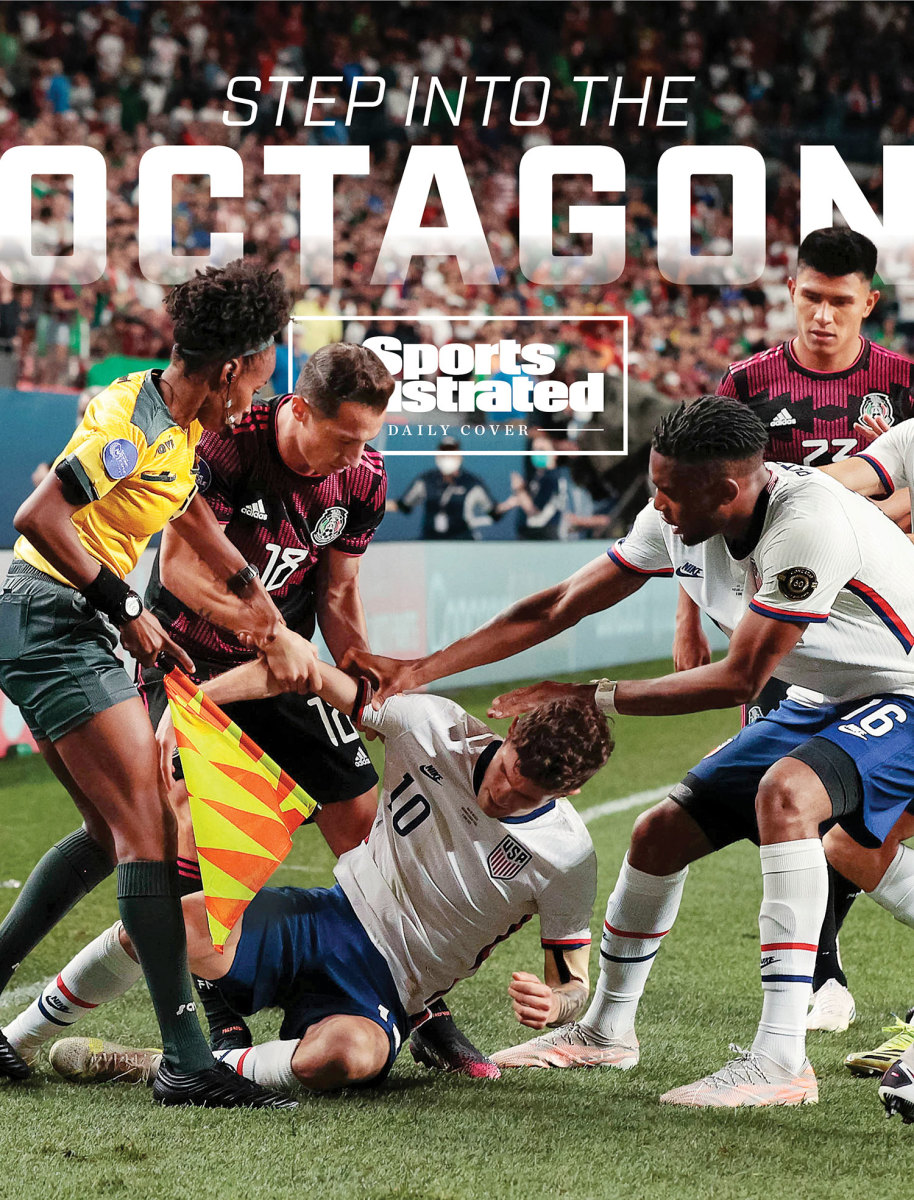
When he was done with the ref, Acosta approached Al-Haydos, who was standing at the spot, just 12 yards from lifting Qatar into the lead. That’s not a long distance. Just about anyone who’s ever kicked a ball can manage it easily. All pros can pick their spots. But penalty kicks under pressure are rarely about technique. Rather, they’re a mental exercise, whether it’s a battle of wits against the goalkeeper or a test of the shooter’s self control and composure. Al-Haydos, 30, had played more than 140 times for his country and scored 32 international goals. He’s as veteran as they come. But he was new to Concacaf.
Drawing on his own experience and observation of similar climactic moments, Acosta went to work, standing between Al-Haydos and the goal and then letting his mouth run.
“I was just saying, ‘You’re going to let your country down. You’re going to miss it. I’ve seen you try to chip it before. You’re wearing No. 10 for no reason. You might as well take it off. You’re just out here. They should put a cone out there instead,’ ” Acosta remembers.
Al-Haydos retorted, the ref intervened and Acosta eventually retreated, but not before getting into it with Almoez Ali, the MVP of Qatar’s triumph at the 2019 Asian Cup. Several players on both sides then became involved, and there was shoving and jawing and more delay. Almost three minutes elapsed. It felt like an eternity. U.S. goalie Matt Turner looked like he was trying to stifle a laugh.
A few yards away, Sebastian Lletget could appreciate what was unfolding.
“As a penalty taker, you just want to get it done,” the U.S. and LA Galaxy midfielder says. “Let me focus on what I’ve got to do. The more time you’ve got to delay, delay, the more time you have to think and doubt.”
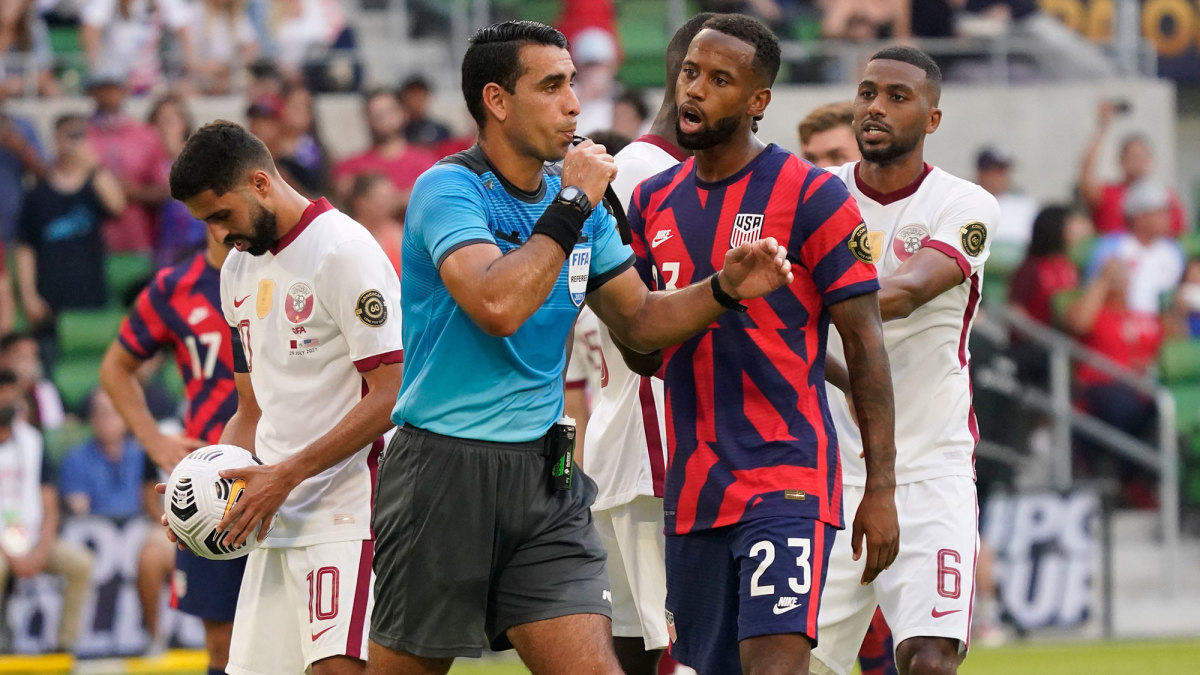
After all that, Al-Haydos popped his shot meekly over the crossbar. There would be no sprint to the corner. The score was still 0–0, but the visitors had been beaten.
“Unfortunately, I think after we missed the penalty, we changed,” Qatar coach Félix Sánchez said afterward.
Acosta would celebrate with his teammates instead. Gyasi Zardes struck in the 86th minute, and the Americans were on their way to the Gold Cup final. There, despite missing its European headliners, coach Gregg Berhalter’s relatively inexperienced squad claimed the title with a 1–0 win over favored Mexico. Combined with the Nations League trophy raised in early June, the unexpected but deserved Gold Cup crown represented a significant step forward, not to mention a statement of intent.
They had already reinvigorated a program that hit rock bottom after missing the 2018 World Cup. Then these young and resilient U.S. players learned to win together. Across the two summer tournaments, the Americans won eight straight games while overcoming deficits, fluctuating personnel and a decent dose of what Concacaf can throw your way (which can be a lot, literally). Acosta’s antics against Qatar were classic Concacaf. They didn’t just reveal a desperate will to win—they reflected an ability to master the game within the game.
Soccer in this idiosyncratic and occasionally infuriating part of the world is often about so much more than simply playing the game. It tests a team’s resolve. And so far, Berhalter’s group has handled those extracurriculars with both grace and grit. But now comes the stiffest challenge yet—the World Cup qualifying Octagonal gauntlet. U.S. soccer’s redemption tour will comprise 14 matches over seven months, starting with three in the next seven days. It kicks off Thursday night in El Salvador, where the majority of Berhalter’s players will face a hostile Concacaf crowd—apart from Mexico fans in the U.S.—for the first time (only six of the 25 men on this week’s squad have previous qualifying experience).
Concacaf qualifiers, especially on the road, are like nothing else in soccer, and they’re a far cry from the relatively pampered and predictable routines players enjoy at their MLS or European clubs. Disparities in talent don’t mean as much once the whistle blows. The ability to endure, and perhaps return fire like Acosta did against Qatar, can make all the difference.
"You cannot be scared, because you are going to lose—even against a team that’s mediocre compared to you,” Lletget warns. “I’ve been in too many games to learn that they’ll beat you if they want it more.”
Acosta, who played a small part in the doomed 2018 cycle, says this U.S. team has the right amount of character and bite.
“We can’t just be those nice guys on the field. ‘Oh it’s O.K. It’s O.K..’ We’re not backing down. You’ve got guys like Weston [McKennie], Gio [Reyna], Tyler [Adams], Christian [Pulisic], even myself. We don’t take s---,” he insists. “We’re not going to let people hover over us and belittle us or anything like that. We want to show them that we’re here. We’re hungry. We’re ready. It doesn’t matter what you throw at us. We’re going to be ready for the fight.”
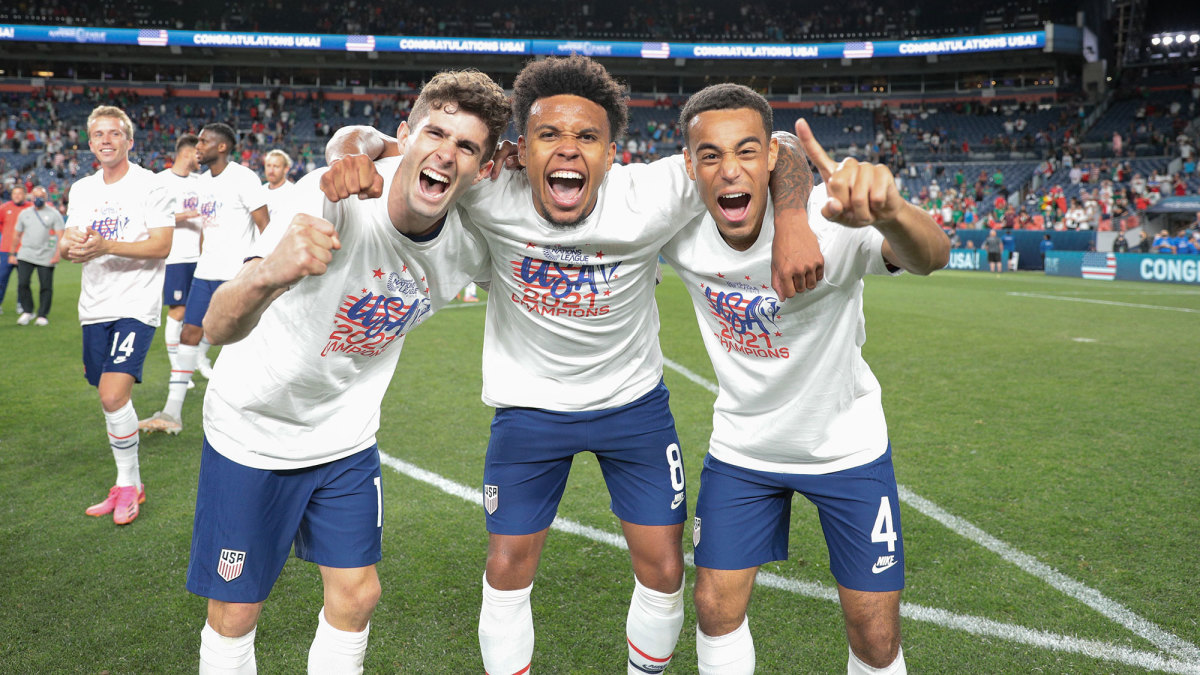
If you follow soccer in this part of the world, you’ve become well-acquainted with the phrase, “Getting Concacafed.” If you’ve been “Concacafed,” it means that you probably lost the game within the game. Whether it was the literal or figurative atmosphere, the inscrutable refereeing or a bit of opposition chicanery or gamesmanship, something knocked you off kilter or got under your skin. That’s how the playing field gets leveled. That’s how talented teams can fail.
Berhalter learned about getting Concacafed during his playing days. He was involved in an infamous incident toward the end of a 2002 World Cup qualifier in Costa Rica, where a phantom handball called against him led to a decisive penalty kick and a 2–1 defeat. U.S. coach Bruce Arena and captain Claudio Reyna (Gio’s dad) protested so vehemently that they each were handed multigame suspensions. Adversity can come from anywhere in Concacaf, and it can come quickly. How you react is critical.
“The games can be hectic. I think it’s just about how you accept it and how you embrace it,” Berhalter said last week. “I remember as a player loving the fact that there’s so much attention around this game and there’s so much hostility with the opponents because I always felt we could play the spoiler. That was our job, to come into these countries and ruin everybody’s day.
“It's just about your outlook,” Berhalter continued. “It’s how you go about preparing mentally for the game, and realizing that within the game there’s always going to be things that happen that you need to be prepared for.”
Dealing with the referees—and opponents trying to con them—is just a small part of the Concacaf experience, which is holistic. It surrounds you. There’s altitude in Mexico City, humidity in Central America and rough field conditions in the Caribbean. Traditionally, kickoff times have been adjusted accordingly. But the game actually begins when the plane lands. Security is tight and ever-present. It’s a constant reminder that the unexpected could be just around the corner. Cameramen on motorcycles or in pick-up trucks have been known to follow the team bus from the airport to the hotel. There, the U.S. can anticipate a quintessentially Concacaf welcome.
“There are so many nightmare stories that you hear,” Lletget says. “But they’re true, and it would be naive of us to expect anything less.”
Just about everything is fair game, as long as it might produce the slightest advantage. In Honduras, a local paper once published a hotel floor plan in order to assist readers interested in disturbing U.S. players the night before the match. In Guatemala, a radio station staged a late-night broadcast that featured loudspeakers on flat-bed trucks across the street. In Mexico City, a band set up in the hotel atrium. Fireworks are common. There have been unsanctioned wake-up calls.
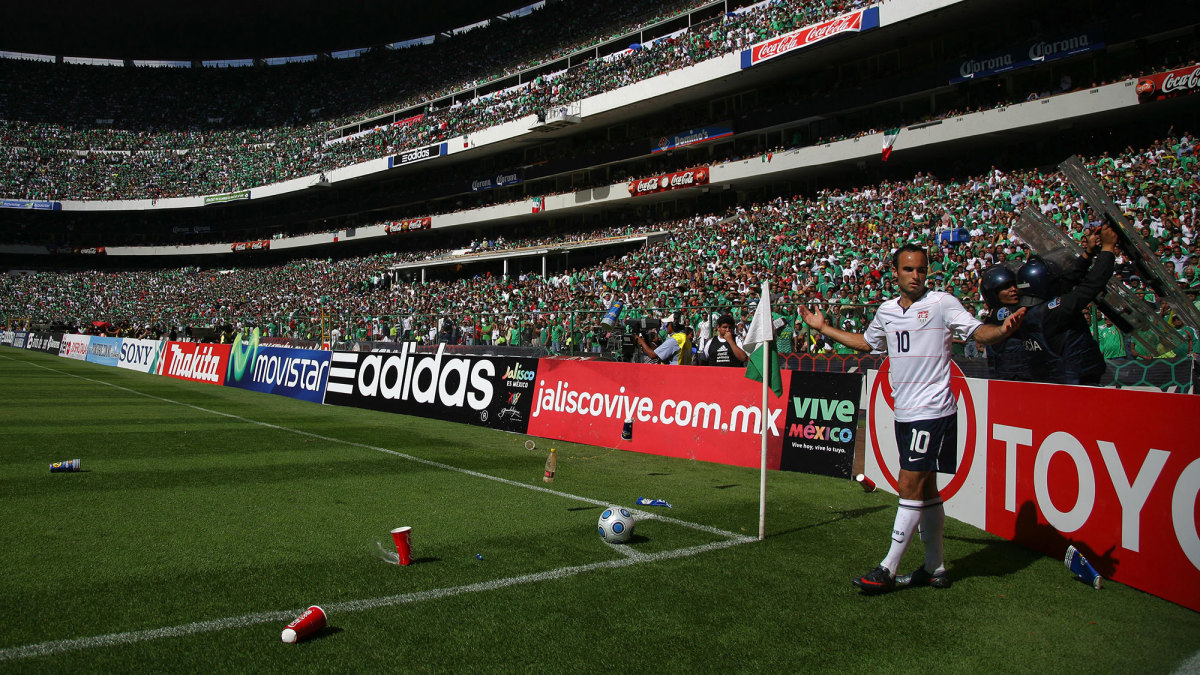
It gets rougher at the stadium. The sound can be visceral, and there are fewer barriers separating players from fans who are itching to get involved. Projectiles and bodily fluids rain down. Multiple generations of U.S. players tell tales of batteries and bags of urine. In Mexico City, a fan vomited into a cup and tossed it at Landon Donovan as the U.S. star prepared to take a corner kick. In El Salvador, someone once threw a severed chicken head at DaMarcus Beasley—and that was at a youth tournament. Berhalter’s Nations League squad got a taste of that intensity during the decider against Mexico in Denver, where fans heaved bottles and cups. Gio Reyna was hit in the head.
Those Nations League games in early June were an important early exam, and they proved to be a pretty accurate Concacaf appetizer. As the semifinal against Honduras remained level, it became clear that Los Catrachos were going to try and drag the scoreless match into a shootout. There was flopping, time-wasting and multiple appearances by the stretcher team. At one point, McKennie’s efforts to speed things up included tying Rigoberto Rivas onto a stretcher himself.
“And the best part, as soon as they’re off the field, they just unbuckle themselves and walk back on. I think they did it seven or eight times,” Lletget says. “They knew we were beating on the door and that was the way to get to penalties and have a chance. As annoying as it is, and it just kills you inside, you have to just stay calm.”
The U.S. stayed calm, and Jordan Pefok won the game with an 89th-minute header.
That set up the U.S.-Mexico final, which was a circus. The game was rough, dirty at times, and tightly contested (there were several choking incidents, eight yellow cards and a red to Mexico manager Gerardo Martino). The Americans fell behind twice but took a 3–2 lead on an extra-time penalty by Pulisic. They then clinched the title when reserve goalie Ethan Horvath saved a subsequent spot kick from Andrés Guardado.
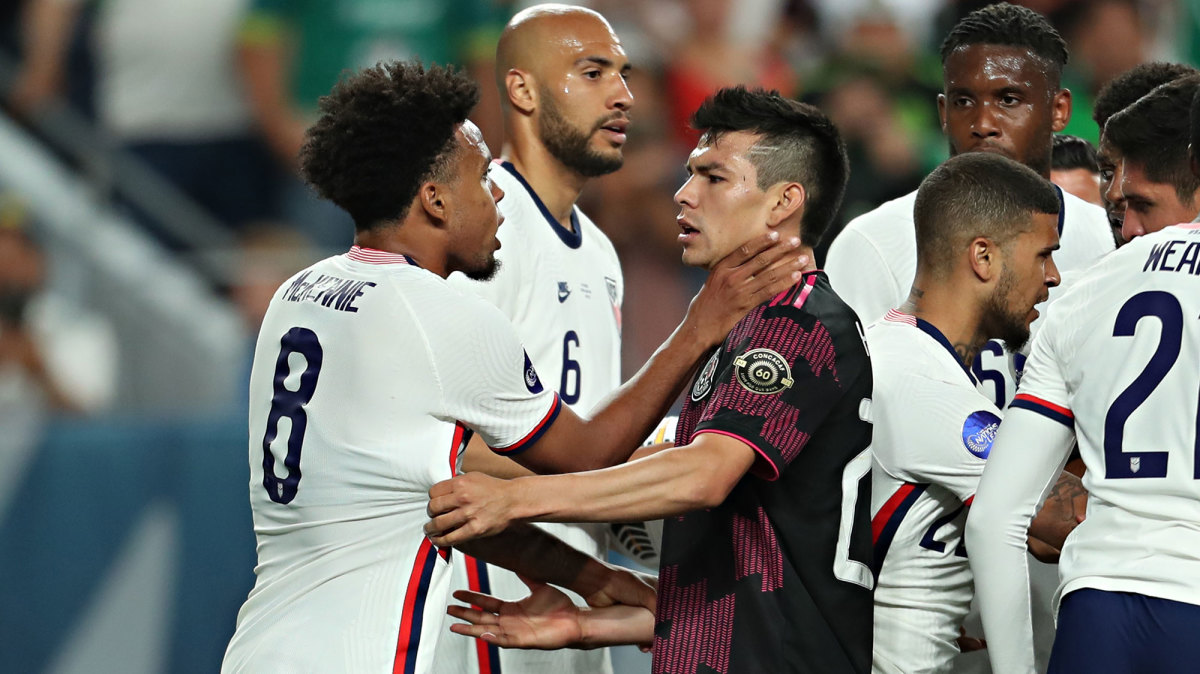
Watch the video, and you can see Acosta standing closest to the El Tri veteran, repeatedly shoving Diego Lainez out of the way. Acosta had been in Guardado’s ear seconds before, honing his Concacaf craft.
“I was like, ‘You’re going to let your country down. All these fans are going to start booing you. You didn’t even start the game. You’re retired,’ ” Acosta recalls.
“Kellyn does have that way about him. There’s a few guys [on the U.S.] that have that cheekiness,” Lletget laughs.
“It’s important that we got a little bit of a taste of that this summer,” Acosta explains. “These experiences were hard but it helped us grow.”
Concacaf is gonna Concacaf. You either lament it, or you lean in. Fielding a confident side full of players who’ve already achieved notable milestones at the club level—10 members of this month’s U.S. squad will take part in this season’s UEFA Champions League and one, Pulisic, has already won it—helps when it comes to handling high stakes. The Americans should be somewhat comfortable with the expectations, attention and pressure. As for the rest—as for Concacaf—they’ll have the wisdom gained this summer, plus the warnings from colleagues like Berhalter and Acosta about what awaits on the road. The results in San Salvador and then San Pedro Sula, Honduras, on Sept. 8—there’s a qualifier against Canada in Nashville in between—will reveal how ready the Americans truly are.
Meanwhile, they’re going to lean in.
“We can’t wait for that. That’s what this is all about,” Berhalter says. “We’ve been developing this group to be resilient, to face challenges head on, to embrace challenges, to embrace setbacks. All these [Concacaf] things are right in line with what we’ve been talking about. When I think about the level of competition our team has been playing at … the guys are ready for this challenge and this is the natural evolution of this group—to compete in events like this. We’ll take it head-on. We know it's going to be road filled with unexpected twists and turns and we’re going to welcome that.”
The effort to forge the resilience Berhalter referenced is anchored by the development of a consistent and inclusive team culture and a preference for a pressing and proactive style of play. U.S. internationals now know what to expect when they come into camp, and by almost all accounts they’re happy to be there. Acosta says it can resemble a club environment. When Berhalter claims his squad will weather the Concacaf qualifying storm—whether that’s harsh surroundings, physical play, bad bounces, wayward refereeing or something else—he’s expecting his charges to “[go] back to who you are as a team, who you are as a player.”
Rely on what you’ve already learned and achieved. Lean on who you’ve become and want to be. Count on each other.
"Everything we’ve been doing the past two years has been preparing them for this,” Berhalter says.

Acosta and Lletget are the only two players on the qualifying squad to win both the Nations League and Gold Cup this summer. They know this U.S. group, and Lletget remembers certain moments where bonds and confidence were strengthened. During brief pauses in the furious Nations League final against Mexico, for example, Lletget said that he and his teammates would gather briefly to center themselves, offer reminders and share some encouragement.
“If there was a foul or fights breaking out, we would try to come together and kind of regroup, even if it was for a couple seconds, just to look at each other and say, ‘Relax, we got this,’ ” Lletget recalls. “We had to keep checking in with each other and keep that communication going.”
That unity and alertness helped the U.S. to Concacaf (the verb) Mexico as the Nations League final reached its climax. Guardado and El Tri had their own penalty kick strategy. While Pulisic was preparing to take his 114th-minute penalty and the ref was distracted, Guardado started digging at the spot with his foot, hoping to deny Pulisic a level surface.
McKennie would have none of that, however, and came over to repair it. Meanwhile, Adams entered the picture to separate Guardado from both the penalty spot and Pulisic. Around the same time, Adams helped Pulisic decide where to aim. That helped calm Pulisic and once the area had been cleared, he buried his shot in the upper-right corner.
“To still get help from his teammates in that situation and in that environment was, I think, a really nice story line,” Berhalter said a couple of weeks later.
“Experiencing these games just kind of draws us to each other and brings us closer. … I fight for you and you fight for me. I think that aspect is huge,” Acosta says. “I’m glad that we got a taste of it early on, rather than getting a taste of it in qualifying. Now we know what to expect. When something like that happens again, I think we’ll continue to know how to act, how to embrace those things and we’ll be ready for it.”
•
•
•
•
